Paris Enters New Lockdown As Europe Resumes AstraZeneca Jabs
A third of France's population was under a new partial lockdown Saturday to stop the spread of Covid-19, as some European countries resumed AstraZeneca vaccinations following an all-clear from EU regulators and the WHO.
The pandemic is still speeding up worldwide, with the number of new global coronavirus infections rising by 14 percent over the last week compared to the previous week, according to AFP data.
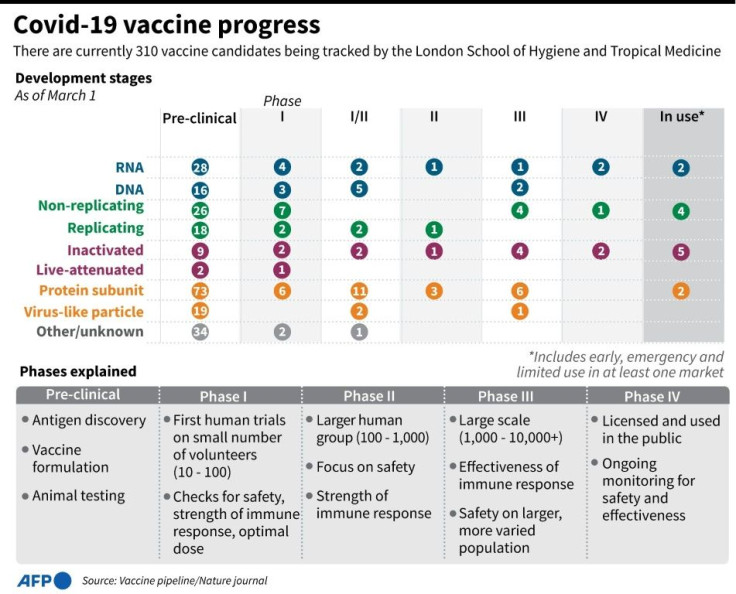
Fighting to prevent yet another wave of the virus, several countries in Europe went back into partial lockdown on Saturday -- with Poland, parts of Ukraine and some French regions all waking up to tight new restrictions.
Parisians packed trains leaving the capital and crammed into shops ahead of the new restrictions coming into force, which will apply to Paris and several other regions for a month.
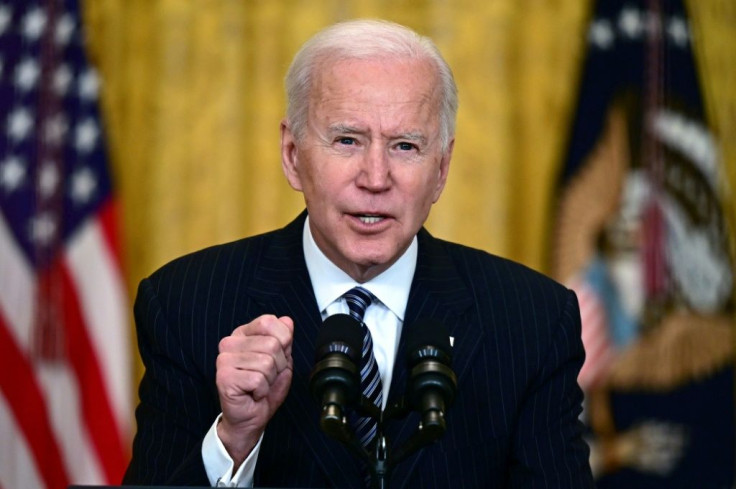
The mayor of Yerres, just outside Paris, told AFP he had told businesses there to remain open, defying the "totally incomprehensible" restrictions.
"Why would we catch Covid more in a shoe store than a bookshop?" he asked.
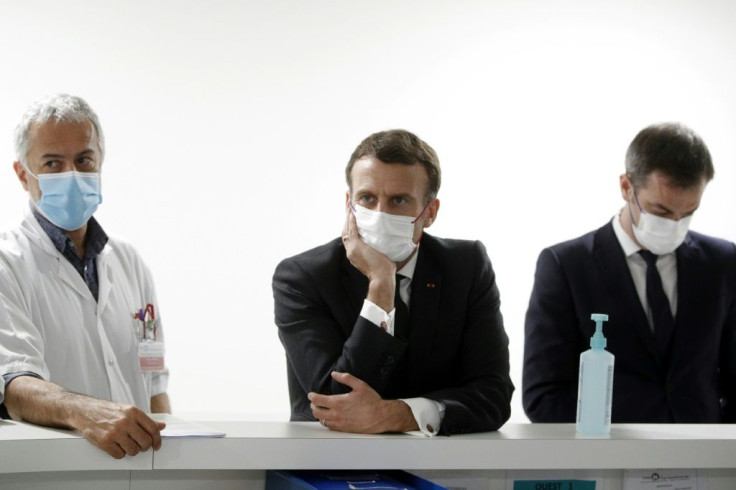
Bookshops are considered essential under the new measures, and later Friday the government added florists, chocolate shops and cobblers to the list.
Signs of lockdown weariness abounded in cities across the world, with protests against restrictions popping up in Vienna, Sofia and Montreal.
Some 20,000 people were expected at a demonstration in the German city of Kassel on Saturday, raising fears it would turn into a superspreader event.
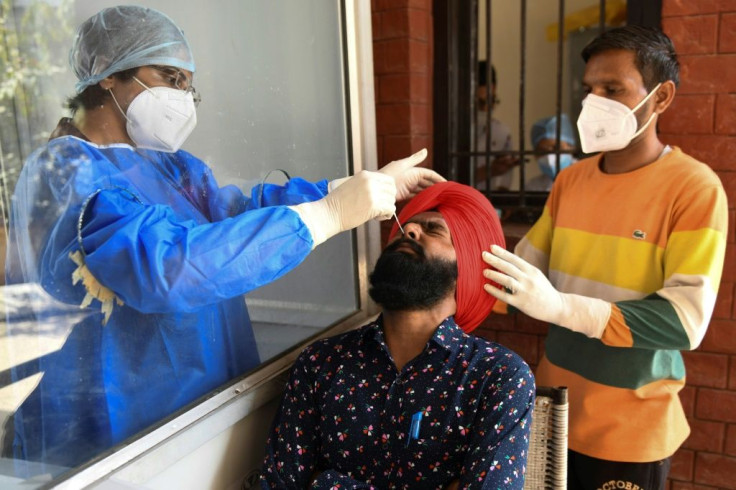
Infection rates are once again rising exponentially in Germany, with the vice president of the Robert Koch Institute for infectious diseases warning of signs of a return to "many severe cases and deaths, and hospitals that are overwhelmed".
Belgium and Switzerland, where cases are also soaring, put off lifting restrictions on Friday too.
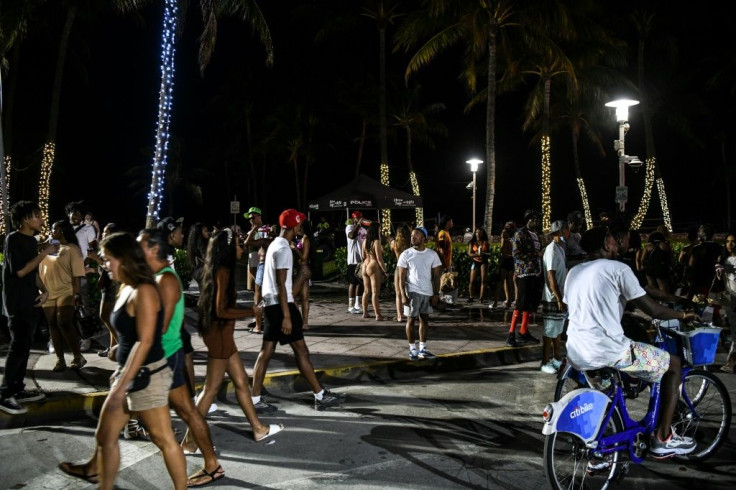
Worries that AstraZeneca's Covid-19 vaccine may cause blood clots had seen countries pause its use recently.
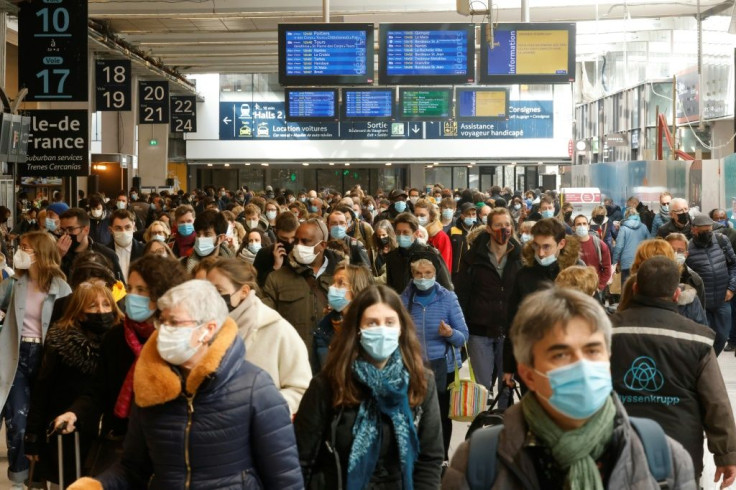
But after the European Medicines Agency said it was "safe and effective", Germany and Italy announced they were using the jab again as of Friday.
France also brought it back into use -- but just hours later, the national health regulator recommended its use only for over-55s, given the reported blood clots were only seen in younger people.
World Health Organization vaccine safety experts said "available data do not suggest any overall increase in clotting conditions" among vaccinated people.
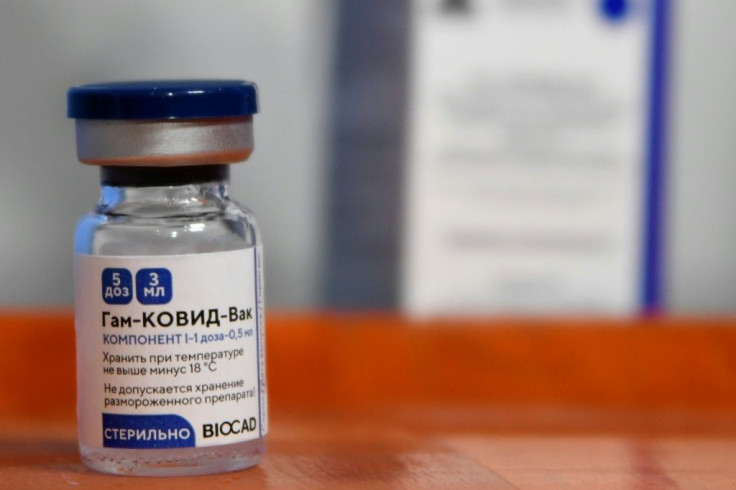
The Netherlands, Spain, Portugal and Indonesia are also ending their suspensions, while Ireland's advisory committee is recommending following suit.
Seeking to reassure their populations, British Prime Minister Boris Johnson and his French counterpart Jean Castex received their first AstraZeneca dose on Friday.
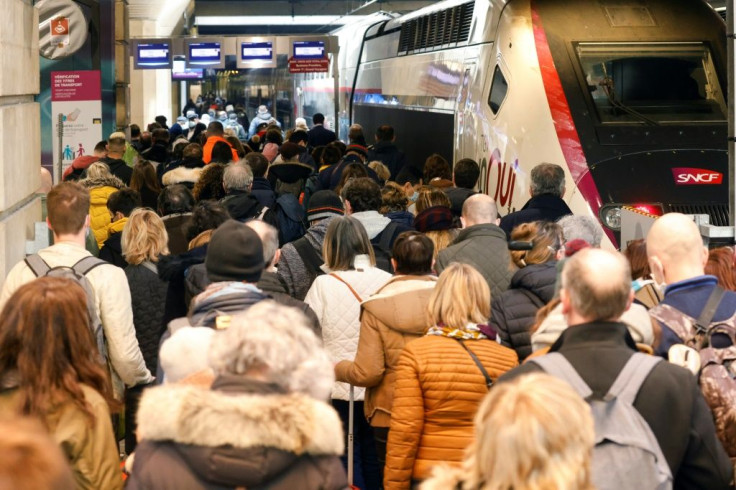
"I literally did not feel a thing. It was very good, very quick," Johnson said.
German Chancellor Angela Merkel and Italian Prime Minister Mario Draghi also committed to get the AstraZeneca vaccine soon.
While political leaders were enthusiastic, some members of the public remain reluctant.
"I'm a bit anxious of course, but what can you do? We have to do this," said 42-year-old teacher Valentina at a vaccine centre at Rome's Termini station.
In Spain, 22-year-old medical student Florentino Quinteiro said he wasn't worried after receiving an AstraZeneca dose last month.
"The population isn't always familiar with the situation, but we're not scared," he said of his colleagues.
"In pharmacology there's always a trade-off between benefit and risk," he added.
Denmark, Norway and Sweden are yet to bring the jab back into use, pending further review, while Finland said Friday it would pause for at least a week "until there is more information".
However, use and production of Russia's Sputnik V vaccine has been ramping up, with the Philippines becoming the latest country to give it the green light Friday, and Indian drugmaker Stelis Biopharma signing on to produce 200 million doses.
Germany said it would order the Sputnik vaccine if the EU authorises its use.
The United States marked a major milestone in its inoculation drive on Friday, administering its 100 millionth vaccine dose to meet President Joe Biden's goal weeks ahead of schedule.
"We did it in about 60 days," he said. "We're not stopping now."
With infection rates falling, there are hopes that the world's worst-hit country, which has seen more than 540,000 deaths, is headed for a powerful rebound.
Meanwhile, Donald Trump's Mar-a-Lago resort in Florida, where the former president has been living since leaving the White House, was partially closed after some staff members tested positive for Covid.
President Jair Bolsonaro, who has railed against stay-at-home measures and face masks, criticised the measure.
"Vitamin D is a way to prevent the virus from seriously affecting you. And where do you get vitamin D? From the sun. Such hypocrisy," said the far-right leader.
© Copyright AFP {{Year}}. All rights reserved.





















